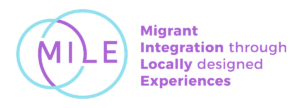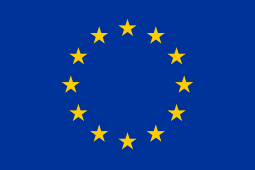Tools
MILE will produce analyses of local and European inclusion policies based on existing frameworks, such as the Integrating Cities toolkit, to guide its activites. For this, we are using benchmarks indicating levels of inclusivity and accessibility in local and European policy-making processes. The choice of common benchmarks and time frames will allow us to draw lines between the different municipalities and their inclusion policies while showcasing their unique realities, challenges, and solutions. Based on background research for each municipality and at the EU level, MILE will produce tailored responses and tools for the inclusion and participation of migrants in policy-making.
The training, designed by New Women Connectors, will be delivered in 2022 to migrant-led organisations and municipality staff. Based on both the needs of local migrants communities and municipalities, the aim is to increase the presence of migrants and refugee representatives in the policy-making process in the municipalities involved in the project and to train both to enhance their capacity for collaboration. The training for the migrant communities with focus on developing their advocacy and leadership skills while municipality staff will be trained in diversity management.
MILE will lead to the creation of consultative bodies in four municipalities – Birmingham, Ioannina, Riga, and Ripollet – relying on the experience of the cities of Amsterdam and Utrecht. These consultative bodies will include representatives of migrant communities in the respective city. By providing a space for regular and structured democratic encounters, the aim to encourage and facilitate the consultation of migrants for decisions and policies in different priority areas.
Building on the consultative bodies, MILE will set up two Europe-wide networks – one for municipalities and one for migrant-led organisations. These networks will be the backbone for future collaboration and exchange around migration, inclusion, and participation. Open to all interested municipalities and migrant-led organisations the networks will provide an opportunity for its members to exchange experiences with each other on challenges and best practices, thus empowering each other and building stronger links.
Our communication activities will include online and offline campaigns as well as events, addressing all those interested in promoting inclusive migration and integration policies as well as participation at the local level and across Europe. Our aim is to communicate in an inclusive and intersectional manner about MILE’s activities and the issues we aim to address: migration, diversity, participation, and inclusive policy-making.
Policy analyses and responses
MILE will produce analyses of local and European inclusion policies based on existing frameworks, such as the Integrating Cities toolkit, to guide its activites. For this, we are using benchmarks indicating levels of inclusivity and accessibility in local and European policy-making processes. The choice of common benchmarks and time frames will allow us to draw lines between the different municipalities and their inclusion policies while showcasing their unique realities, challenges, and solutions. Based on background research for each municipality and at the EU level, MILE will produce tailored responses and tools for the inclusion and participation of migrants in policy-making.
Training
The training, designed by New Women Connectors, will be delivered in 2022 to migrant-led organisations and municipality staff. Based on both the needs of local migrants communities and municipalities, the aim is to increase the presence of migrants and refugee representatives in the policy-making process in the municipalities involved in the project and to train both to enhance their capacity for collaboration. The training for the migrant communities with focus on developing their advocacy and leadership skills while municipality staff will be trained in diversity management.
Local migrant consultative bodies
MILE will lead to the creation of consultative bodies in four municipalities – Birmingham, Ioannina, Riga, and Ripollet – relying on the experience of the cities of Amsterdam and Utrecht. These consultative bodies will include representatives of migrant communities in the respective city. By providing a space for regular and structured democratic encounters, the aim to encourage and facilitate the consultation of migrants for decisions and policies in different priority areas.
Long-term city and migrant networks
Building on the consultative bodies, MILE will set up two Europe-wide networks – one for municipalities and one for migrant-led organisations. These networks will be the backbone for future collaboration and exchange around migration, inclusion, and participation. Open to all interested municipalities and migrant-led organisations the networks will provide an opportunity for its members to exchange experiences with each other on challenges and best practices, thus empowering each other and building stronger links.
Communication
Our communication activities will include online and offline campaigns as well as events, addressing all those interested in promoting inclusive migration and integration policies as well as participation at the local level and across Europe. Our aim is to communicate in an inclusive and intersectional manner about MILE’s activities and the issues we aim to address: migration, diversity, participation, and inclusive policy-making.

